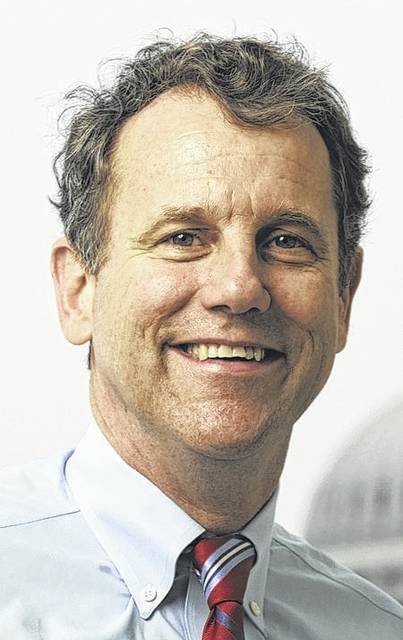
You shouldn’t have to live in a big city or a wealthy suburb to have good job opportunities, quality healthcare, high-speed internet, or a great education for your kids. Ohio deserves better.
Today, though, opportunity is arriving in places too long overlooked by corporate America, and too long ignored by both political parties. And much of the small-city, small-town Midwest is poised to make a comeback.
I grew up in one of those places. As a student at Johnny Appleseed Junior High School (yes, that was its real name: the Johnny Appleseed Pioneers) in Mansfield, Ohio, I walked the halls with the sons and daughters of steelworkers at Empire Detroit, electrical workers at Westinghouse, autoworkers at General Motors, and with the children of union electricians and carpenters and laborers. In the 1970s and 80s those jobs began to move south as corporate leaders, always in search of lower wages, moved production to non-union Alabama and Mississippi and Georgia. With plant closures, middle class lifestyles vanished and communities like mine, and the working families who built our country, were disappearing.
Now, working class families in communities across Ohio are beginning to see the benefits of a government that is on their side – that fights for them in the face of corporate greed and unfair foreign competition: we restored pensions, which had been robbed by Wall Street, for tens of thousands of working families in Ohio and throughout the Midwest.
Bridges over the Ohio and Cuyahoga and Miami Rivers are being rebuilt, and hundreds of culvert bridges fixed, like the ones I drove a hay wagon over during high school summers in north central Ohio. Cables are beginning to be laid by union workers in rural Ohio, finally bringing high-speed internet so students and small businesses can thrive in Appalachia.
And today’s workers? Trained electricians and pipefitters and insulators and bricklayers are rebuilding our country, in proud southeast Ohio communities like Coshocton and Ironton and Cambridge. These tradespeople are taking on apprentices and setting a new generation up for a middle class life, without massive debt from student loans.
Here’s how it works: young Ohioans – women and men, of all races and backgrounds – are joining union apprentice programs. They get paid during their training the first year, with full medical and pension benefits on day one. By the fifth year, as they complete their training, workers generally earn at least thirty dollars an hour – with no student debt.
Because of the work we are doing to roll out an industrial policy for the first time in five decades, construction of new manufacturing facilities – made in America by American workers –has essentially doubled. The largest solar manufacturing facility in America is expanding in Perrysburg, Ohio. Honda is building a battery plant in rural Jeffersonville. The Intel project alone, America’s largest new semiconductor chips plant that’s being built in central Ohio, will need at least 7,000 union tradespeople for the next ten years.
Projects like Intel are about more than just the construction jobs – they’re about bringing supply chains back home to America, to the Midwest, to Ohio. It’s not enough to invent technology in this country. America invented the semiconductor, yet today, 90 percent are made overseas in Asia.
We’ve seen the same story over and over. Take a look at the label on any smartphone: It probably says developed in California…and made in China. And we’ve ended up with tech jobs for a small number of elites in Silicon Valley, but not the production jobs that we need throughout the country. That’s not good enough – and we’re going to change it.
These are the communities that built this country, and that continue to work and sacrifice for us today. And chief among those are our veterans. Ohio has long been a leader in military service – we have more than a million veterans in our state. And veterans who have returned to rural Ohio after serving their country should not then be forced to drive hours to big cities just to get health care. We prevented the closure of the Chillicothe VA, and have opened and are now expanding thirty community-based VA clinics in towns like Zanesville and St. Clairsville and Marietta and my wife’s hometown of Ashtabula. Thousands of veterans exposed in Iraq and Afghanistan to the football-field-sized burn pits will get the care they have earned at veterans clinics, only a few minutes from their homes – no matter where they call home in Ohio.
Sherrod Brown is the senior U.S. senator from Ohio.



